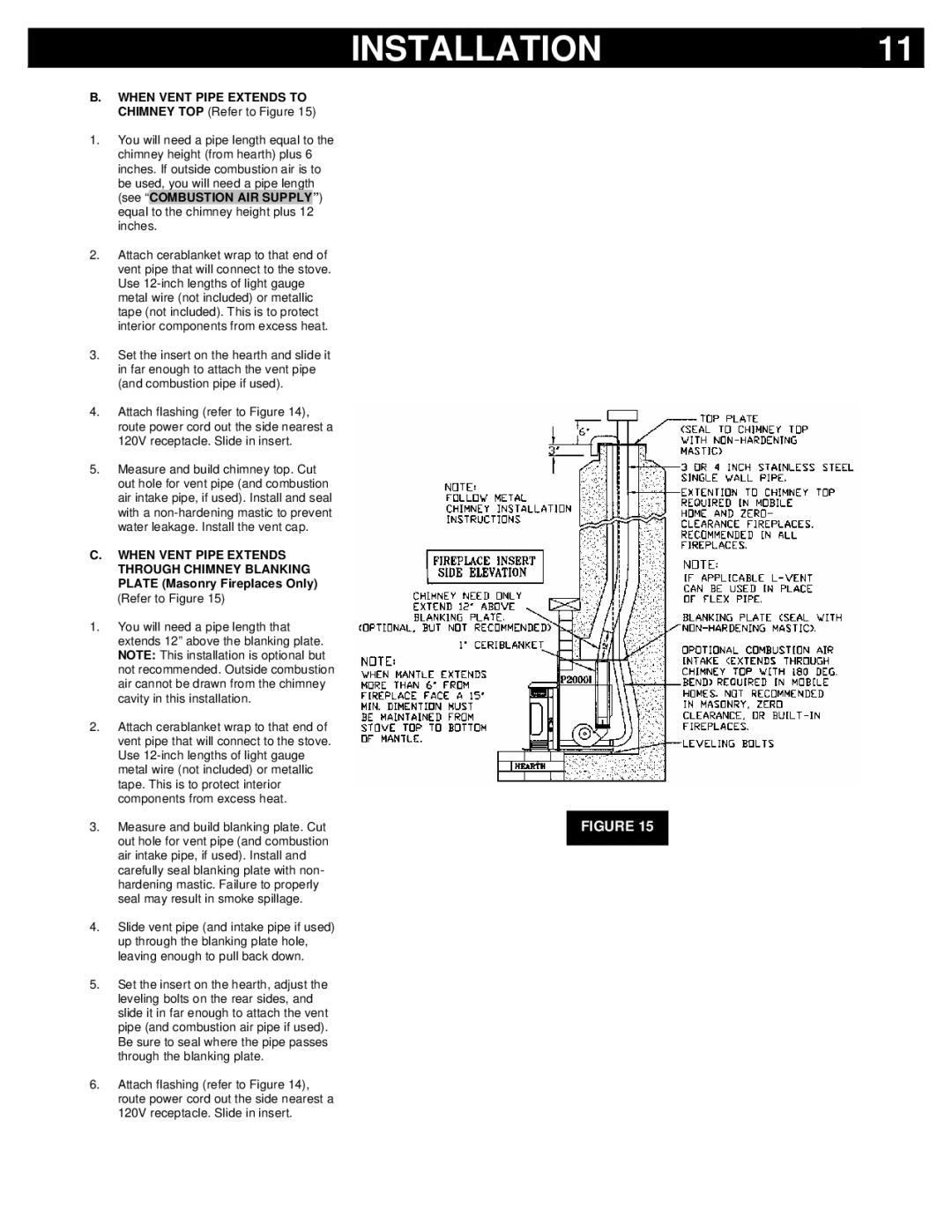
INSTALLATION
11
B.WHEN VENT PIPE EXTENDS TO CHIMNEY TOP (Refer to Figure 15)
1.You will need a pipe length equal to the chimney height (from hearth) plus 6 inches. If outside combustion air is to be used, you will need a pipe length (see “COMBUSTION AIR SUPPLY”) equal to the chimney height plus 12 inches.
2.Attach cerablanket wrap to that end of vent pipe that will connect to the stove. Use
3.Set the insert on the hearth and slide it in far enough to attach the vent pipe (and combustion pipe if used).
4.Attach flashing (refer to Figure 14), route power cord out the side nearest a 120V receptacle. Slide in insert.
5.Measure and build chimney top. Cut out hole for vent pipe (and combustion air intake pipe, if used). Install and seal with a
C.WHEN VENT PIPE EXTENDS THROUGH CHIMNEY BLANKING PLATE (Masonry Fireplaces Only) (Refer to Figure 15)
1.You will need a pipe length that extends 12” above the blanking plate. NOTE: This installation is optional but not recommended. Outside combustion air cannot be drawn from the chimney cavity in this installation.
2.Attach cerablanket wrap to that end of vent pipe that will connect to the stove. Use
3.Measure and build blanking plate. Cut out hole for vent pipe (and combustion air intake pipe, if used). Install and carefully seal blanking plate with non- hardening mastic. Failure to properly seal may result in smoke spillage.
4.Slide vent pipe (and intake pipe if used) up through the blanking plate hole, leaving enough to pull back down.
5.Set the insert on the hearth, adjust the leveling bolts on the rear sides, and slide it in far enough to attach the vent pipe (and combustion air pipe if used). Be sure to seal where the pipe passes through the blanking plate.
6.Attach flashing (refer to Figure 14), route power cord out the side nearest a 120V receptacle. Slide in insert.
FIGURE 15
